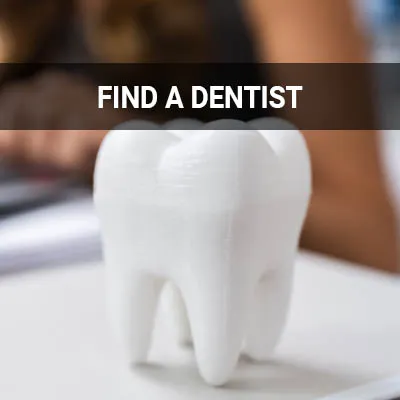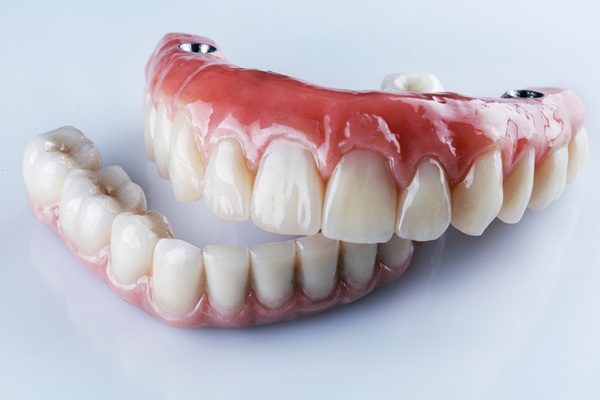Dental Procedures Marietta, GA
Dental procedures involve all procedures and treatments that are not considered or performed routinely. Routine procedures include examinations and professional cleanings, along with a few treatments for functional purposes. Dental procedures cover many aesthetic and functional treatments, from basic fillings to tooth replacements and extractions.
Various dental procedures are available at Happy Dental and Orthodontics in Marietta and the surrounding area. We can help you achieve and maintain a healthy smile by treating conditions as soon as they arise. Call us today at (770) 200-4034 to schedule an appointment or learn more about our services.
Determining Candidacy
Each type of dental procedure differs from the next, along with its guidelines and candidacy. We recommend that all patients visit their dentist for a biannual routine check-up and cleaning to treat conditions as soon as they arise. The number of regular checkups will help maintain a healthy oral cavity. Routine treatments include regular and deep cleanings, fluoride treatments, bonding and tooth whitening, and sealant and crown placement.
We determine candidacy for each dental procedure depending on the patient's age, condition, and severity of their case. Dental procedures are typically performed to treat cases of moderate to severe tooth decay, tooth damage, or gum disease. These conditions can stem from a disorder such as TMJ, behavioral factors such as clenching and grinding or poor oral hygiene, and genetic factors that impact growth and development.
“We determine candidacy for each dental procedure depending on the patient’s age, condition, and severity of their case.”
Composite and Fillings
Tooth fillings are primarily done to remove decay and fill a space immediately to prevent the further spread of bacteria to surrounding teeth, gums, and bone. They are also used to restore or repair cracked, chipped, or broken teeth. Typically, we will administer a local anesthetic to keep the patient comfortable during treatment. Then, we remove the decay using a drill, air abrasion tool, or laser and fill the empty space with the filling material. Lastly, we use a special light to bond the material to the tooth until it hardens.
There are several types of filling materials used in dentistry, including gold, porcelain, silver amalgam (mercury mixed with silver, tin, zinc, and copper), tooth-colored, plastic, and composite resin fillings. Each of these comes with specific advantages and disadvantages, costs, and longevity. We will determine the most effective type of filling material by the amount of decay present. We can also consider using tooth-colored resin to match the rest of the mouth.
“Tooth fillings are primarily done to remove decay and fill a space immediately to prevent further spread of bacteria to surrounding teeth, gums, and bone.”
Dental Crowns & Root Canal Treatments
Dental crowns, also known as "caps," are meant to protect and repair damaged or weak teeth. They may consist of different materials, such as metal or porcelain. They may enhance or restore a tooth's shape, size, strength, and appearance. Dental crowns may also help hold damaged teeth together and support teeth with large fillings where there is little remaining natural tooth left. Dentists may employ dental crowns to keep bridges in place, disguise misshapen or discolored teeth, or cover dental implants. Getting a dental crown requires at least two separate office visits, as the dentist will need to take X-rays, impressions, or scans to ensure the patient will have the correct fit.
Patients may need root canal treatment if the pulp of their teeth is inflamed or infected. This could be due to deep decay, excessive dental procedures, faulty crowns, or a crack or chip in the tooth. It is even possible for a tooth to have undergone trauma without any visible chips or cracks. Root canal treatment involves removing the inflamed or infected pulp, cleaning and disinfecting the inside of the tooth, and filling and sealing the remaining space. The dentist will then restore the tooth with either a crown or filling for protection. This will allow it to function like a natural tooth.
“Dental crowns, also known as “caps,” are meant to protect and repair damaged or weak teeth.”
Check out what others are saying about our dental services on Yelp: Dental Procedures in Marietta, GA
Tooth Replacement Options
There are a variety of tooth replacement options available for patients with dental or facial trauma, genetic or behavioral conditions, and prior dental treatments. Tooth replacements include implants, bridges, partial and complete dentures, and crowns. Replacing a tooth is often necessary to maintain proper oral function and restore speech, eating, and breathing. We will discuss tooth replacement options with patients when the need arises.
Scaling and Root Planing
Scaling and root planing, commonly called a deep cleaning, is a procedure performed to treat or prevent the progression of gum disease. During scaling and root planing, we use a special scraping tool to remove plaque from the surfaces of teeth and then smooth out the roots. This allows the gums to properly heal and reattach to the teeth. A deep cleaning is usually needed when a patient's teeth and gums are worn or decayed. We will discuss this treatment option when we first spot signs of developing gum disease.
“Scaling and root planing, commonly called a deep cleaning, is a procedure performed to treat or prevent the progression of gum disease.”
Questions Answered on This Page
Q. Why might I need a dental crown?
Q. What are some of the reasons one might need a tooth extraction?
Q. How to determine candidacy for dental procedures?
Q. What tooth replacements options are available?
People Also Ask
Q. Do I need a tooth extraction?
Tooth Extractions
Though wisdom tooth extractions are the most common, there are several other reasons patients may need to remove their teeth. These include but are not limited to crowding, excessive tooth decay, and tooth infection. While removing visible teeth is relatively simple, removing teeth that are below the surface, broken, or impacted may require a more involved procedure. In a simple extraction, the patient will receive a local anesthetic to numb the area while the dentist loosens and removes the tooth. In a more involved extraction, the patient may receive both local and intravenous (IV) anesthesia to render them unconscious throughout the procedure.
“Though wisdom tooth extractions are the most common, there are several other reasons patients may need to remove their teeth.”
Frequently Asked Questions
Q. Do most dental procedures hurt?
A. We administer an anesthetic for most non-routine dental procedures to keep patients comfortable and pain-free during treatment. In many cases, patients may feel soreness, tenderness, and slight discomfort following a procedure due to the pressure put on the teeth and gums. However, this should dissipate within the first few hours or, at the most, a few days.
Q. How much do dental treatments cost on average?
A. Every dental procedure differs in the materials used, extent of decay, and length of time. As such, the cost of each procedure is discussed after an examination appointment in which we can properly determine what the treatment will entail. It is a good idea to also discuss your dental package with your insurance provider.
Q. How long do dental crowns last?
A. Dental crowns have become quite durable with recent advancements in dental technology. Most crowns, depending on the material used, can last from five to 15 years with adequate care and maintenance. We will discuss a crown's possible longevity with the patient during their placement appointment and provide them with healthy hygiene habits to adopt.
Q. How can I properly care for and maintain healthy teeth at home?
A. Basic brushing is not enough to maintain healthy teeth and gums, especially following any dental treatments. We recommend patients brush their teeth two to three times daily, rinse after each meal, and floss at least once a day. It is also important to avoid sticky, hard, sugary, and acidic foods and beverages that easily decay the teeth. Lastly, make sure to visit your dentist regularly for a biannual checkup and cleaning.
Q. When does pain become abnormal after an extraction or root canal treatment?
A. Extensive procedures, such as extractions, root canals, and surgeries, often have the longest recovery time. However, anti-inflammatory and pain medications should help with swelling and healing. Patients should not experience pain for longer than two weeks. Give us a call if you are experiencing pain for longer than the ascribed time for your procedure type.
Dental Terminology
Quality Dental Services Can Transform Your Smile
By visiting us as soon as possible, our team can help get you the professional treatment you need. Instead of waiting around and allowing the symptoms to get worse, we can provide you with stronger medication and treatment options instead of ineffective store-bought products.
Helpful Related Links
- American Dental Association (ADA). Glossary of Dental Clinical Terms. 2024
- American Academy of Cosmetic Dentistry® (AACD). Home Page. 2024
- WebMD. WebMD’s Oral Care Guide. 2024
About our business and website security
- Happy Dental and Orthodontics was established in 2021.
- We accept the following payment methods: American Express, Cash, Discover, MasterCard, and Visa
- We serve patients from the following counties: Cobb County and Fulton County
- We serve patients from the following cities: Marietta, Smyrna, Sandy Springs, Atlanta, Kennesaw, Roswell, Acworth, East Cobb, Alpharetta and Fair Oaks
- National Provider Identifier Database (1407403652). View NPI Registry Information
- Norton Safe Web. View Details
- Trend Micro Site Safety Center. View Details
Back to top of Dental Procedures











